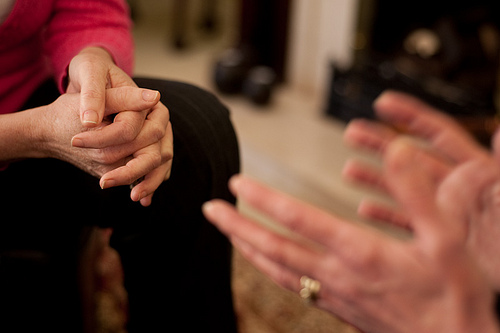
There is a part of the brain called the dopaminergic reward system that as the name says uses dopamine as a transmitter to reward some activities. This is a pretty ancient system and rewards behaviour that sustains us as a species, such as eating chocolates (sweet or fatty food), being warm and cosy and having sex. This system does more than rewarding behaviour; it also makes us want to repeat behaviours that we enjoy.
But what happens to this system if you are taking dopamine receptor blockers such as antipsychotics? Not surprisingly, there is at least the potential for a problem. Almost all drugs used in psychiatry can interfere with a patient’s sex life, as can the mental illness itself. This can be very distressing.
Here we review the recently published article in World Psychiatry authored by Montejo et al (2018): ‘The impact of severe mental disorders and psychotropic medications on sexual health and its implications for clinical management’.

Almost all drugs used in psychiatry can interfere with a patient’s sex life, as can the mental illness itself.
Method
This review contains no method section. It is thus a narrative review.
Results
Sexual dysfunction often accompanies severe psychiatric illness and can be due to both the mental disorder itself and the use of psychotropic treatments. Many sexual symptoms resolve as the mental state improves, but treatment-related sexual adverse events tend to persist over time, and are unfortunately under-recognized by clinicians and scarcely investigated in clinical trials.
People with psychotic illness have multiple factors that interfere with a satisfying sex life. These include
- Negative symptoms (apathy, avolition)
- Depressive symptoms
- The effects of antipsychotic medication
- Reduced chances to find and keep a partner.
Because of these factors, most people with psychotic illness are either abstinent or confined to masturbation.
Just as psychotic symptoms improve, antipsychotic medication makes it harder to want and to enjoy sex. Just as yourself – when you were in your twenties what sort of activities would you dream of and look forward, too? There’s a fair chance that sex was on the menu. Patients on antipsychotic medication can experience all forms of sexual dysfunction including decreased desire, difficulties in sexual arousal, erectile dysfunction, poor vaginal lubrication, orgasm problems and reduced sexual satisfaction. Often patients have more than one problem. Some people with psychosis consider impairment of sexual function as the most important adverse effect of antipsychotic medication, and of course this can have a negative impact on treatment adherence (Kelly & Conley, 2004; Bebbington et al, 2009).
The pharmacological pathways involved are hyperprolactinaemia, dopamine blockade and alpha-1 receptor blockade. Some antipsychotics may also directly interfere with erections by affecting penile blood vessels.
This is not only the case for people with schizophrenia, but also for people with bipolar disease. We all know that sexual recklessness is a symptom of manic illness. But we do not always remember that sexual dysfunction is very common and often very distressing during depressive phases. Many drugs used to treat bipolar disease, including lithium, sodium valproate, carbamazepine and benzodiazepines can cause sexual dysfunction.
Sexual dysfunction is also very common in patients with depressive illness. Like in patients with psychotic illness the sexual dysfunction can affect libido, arousal, orgasm and satisfaction with sex. Often more than one of these domains is affected. Like in psychotic illness, sexual dysfunction can be blamed on the condition and on the medication.

Lots of things can get in the way of a satisfying sex life, if you are living with severe mental illness.
Conclusion
In this recent review, Montejo et al (2018) state that mental illness and psychotropic drugs can negatively affect sexual function and satisfaction:
Systematic enquiries in all patients about previous and current sexual life are needed to assess potential sexual dysfunction, and to manage it with the aims of preserving quality of life, maintaining emotional experiences and continuing partner relationships.
Treatments with fewer adverse sexual effects should be considered as potential first-line options in patients with severe mental illness interested in maintaining a sexual life. Managing treatment-emergent side effects adequately is crucial to facilitate compliance and achieve the best possible outcomes.
Strength and limitations
The paper is a good summary of the current state of knowledge. It is easy to read and highlights an important but often ignored problem in psychiatric care. It is not a systematic review and it is thus possible that some important evidence was not presented.
The main shortcoming of the paper for me is that it is too much focused on pharmacological interventions. It does not present any evidence for or against the use of psychosexual treatment for sexual dysfunction for people with serious mental illness.

This review focuses on medication, but ignores psychosexual treatment for sexual dysfunction for people with serious mental illness.
So what can be done?
Sexual function matters!
We need to recognise that sexual function matters to people living with serious mental illness, even if they are not volunteering this information.
More confident discussions
As health and social care practitioners, we need to become confident in facilitating discussion about sexual function. This may include a sentence such:
- Many patients/clients with mental health problems find that sex does not work as well for them as they wish. Because this can affect their quality of life I now ask all my patients/clients about this. Is it OK with you to talk about sex?
Management strategy
We need a management strategy that works for each patient:
- There is value in reassurance that symptoms including sexual dysfunction often improve with time.
- For some symptoms there is specific treatment such Sildenafil (which used to be Viagra®, but is now available as a generic drug at low cost and without prescription) for erectile dysfunction (Mazzilli et al, 2018) or over the counter lubricants for vaginal dryness.
- There is psychosexual treatment, and then there is the option to reduce the antipsychotic dose or change to a different antipsychotic medication: olanzapine, quetiapine and particularly aripiprazole may be better drugs to use as far as sexual function is concerned (Serretti et al, 2011).
- In bipolar disease, adjusting the lithium dose, reviewing the need for concomitant benzodiazepine (Elnazer et al, 2015) and possibly changing to a different antiepileptic drug such as oxcarbazepine lamotrigine could be considered (Yogarajah et al, 2017).
- Likewise some antidepressants appear more harmful to a person’s sexual function than others. Current best options for men and women (Nurnberg et al, 2003 and 2008) who are depressed is sildenafil (and other similar drugs), yet changing the antidepressant drug possibly to bupropion (Gartlehner et al, 2011) or mirtazapine (Watanabe et al, 2011) could have a positive effect.
Holistic sexual and reproductive health
We need to provide holistic sexual and reproductive health, not only address sexual function. This includes diagnosis and treatment of STIs, contraception and pregnancy planning. This is particularly relevant for women on sodium valproate, which must no longer be prescribed to women or girls of childbearing potential unless they are on the pregnancy prevention programme (MRHA, 2018) and women at risk of puerperal psychosis.

We need to provide holistic sexual and reproductive health, not only address sexual function.
Links
Primary paper
Montejo AL, Montejo L, Baldwin DS. (2018) The impact of severe mental disorders and psychotropic medications on sexual health and its implications for clinical management. World Psychiatry, 17: 3–11.
Other references
Kelly DL, Conley RR. (2004) Sexuality and Schizophrenia: A Review, Schizophrenia Bulletin, Volume 30, Issue 4, 1 January 2004, Pages 767–779. https://doi.org/10.1093/oxfordjournals.schbul.a007130
Bebbington PE, Angermeyer M, Azorin J, Marwaha S, Marteau F, Toumi M. (2009) Side‐effects of antipsychotic medication and health‐related quality of life in schizophrenia. Acta Psychiatrica Scandinavica, 119: 22-28. doi:10.1111/j.1600-0447.2008.01310.x
Mazzilli R, Angeletti G, Olana S, Delfino M, Zamponi V, Rapinesi C, Del Casale A, Kotzalidis GD, Elia J, Callovini G, Girardi P, Mazzilli F. (2018) Erectile dysfunction in patients taking psychotropic drugs and treated with phosphodiesterase-5 inhibitors (PDF). Arch Ital Urol Androl. 2018 Mar 31;90(1):44-48. doi: 10.4081/aiua.2018.1.44.
Serretti A, Chiesa A. (2011) A meta-analysis of sexual dysfunction in psychiatric patients taking antipsychotics. Int Clin Psychopharmacol. 2011 May;26(3):130-40. doi: 10.1097/YIC.0b013e328341e434. [PubMed abstract]
Elnazer HY, Sampson A, Baldwin D. (2015) Lithium and sexual dysfunction: an under-researched area. Hum Psychopharmacol. 2015 Mar;30(2):66-9. doi: 10.1002/hup.2457. Epub 2015 Jan 26. [PubMed abstract]
Yogarajah M, Mula M. Sexual Dysfunction in Epilepsy and the Role of Anti-Epileptic Drugs. Curr Pharm Des. 2017;23(37):5649-5661. doi: 10.2174/1381612823666171004115230. [PubMed abstract]
Nurnberg HG, Hensley PL, Gelenberg AJ, Fava M, Lauriello J, Paine S. (2003) Treatment of antidepressant-associated sexual dysfunction with sildenafil: a randomized controlled trial. JAMA. 2003 Jan 1;289(1):56-64.
Nurnberg HG, Hensley PL, Heiman JR, Croft HA, Debattista C, Paine S. (2008) Sildenafil treatment of women with antidepressant-associated sexual dysfunction: a randomized controlled trial. JAMA. 2008 Jul 23;300(4):395-404. doi: 10.1001/jama.300.4.395.
Gartlehner G, Hansen RA, Morgan LC, Thaler K, Lux L, Van Noord M, Mager U, Thieda P, Gaynes BN, Wilkins T, Strobelberger M, Lloyd S, Reichenpfader U, Lohr KN. (2011) Comparative benefits and harms of second-generation antidepressants for treating major depressive disorder: an updated meta-analysis. Ann Intern Med. 2011 Dec 6;155(11):772-85. doi: 10.7326/0003-4819-155-11-201112060-00009.
, , , , , , . (2011) Mirtazapine versus other antidepressive agents for depression. Cochrane Database of Systematic Reviews 2011, Issue 12. Art. No.: CD006528. DOI: 10.1002/14651858.CD006528.pub2.
Photo credits
- Photo by Bryan Apen on Unsplash
- Jonathan Rolande CC BY 2.0
- Photo by Meghan Holmes on Unsplash
- Photo by Form on Unsplash

[…] elves have blogged about sexual function being important to people using mental health services (Pittrof, 2018) and also that behavioural interventions can increase safer sex for this group of […]